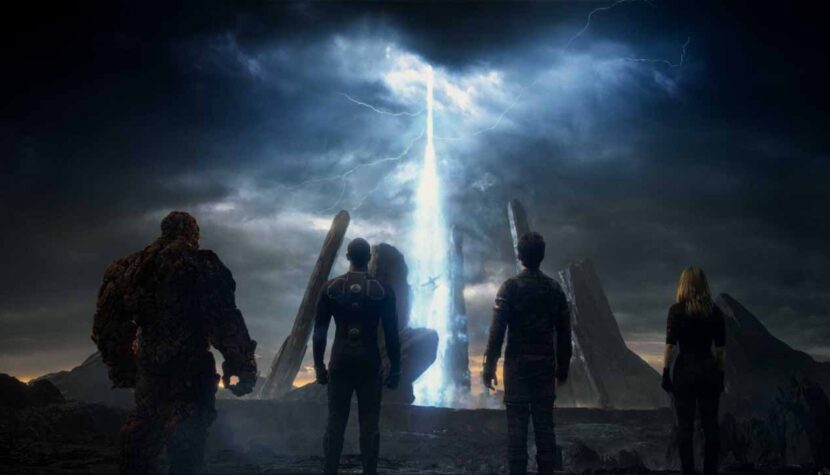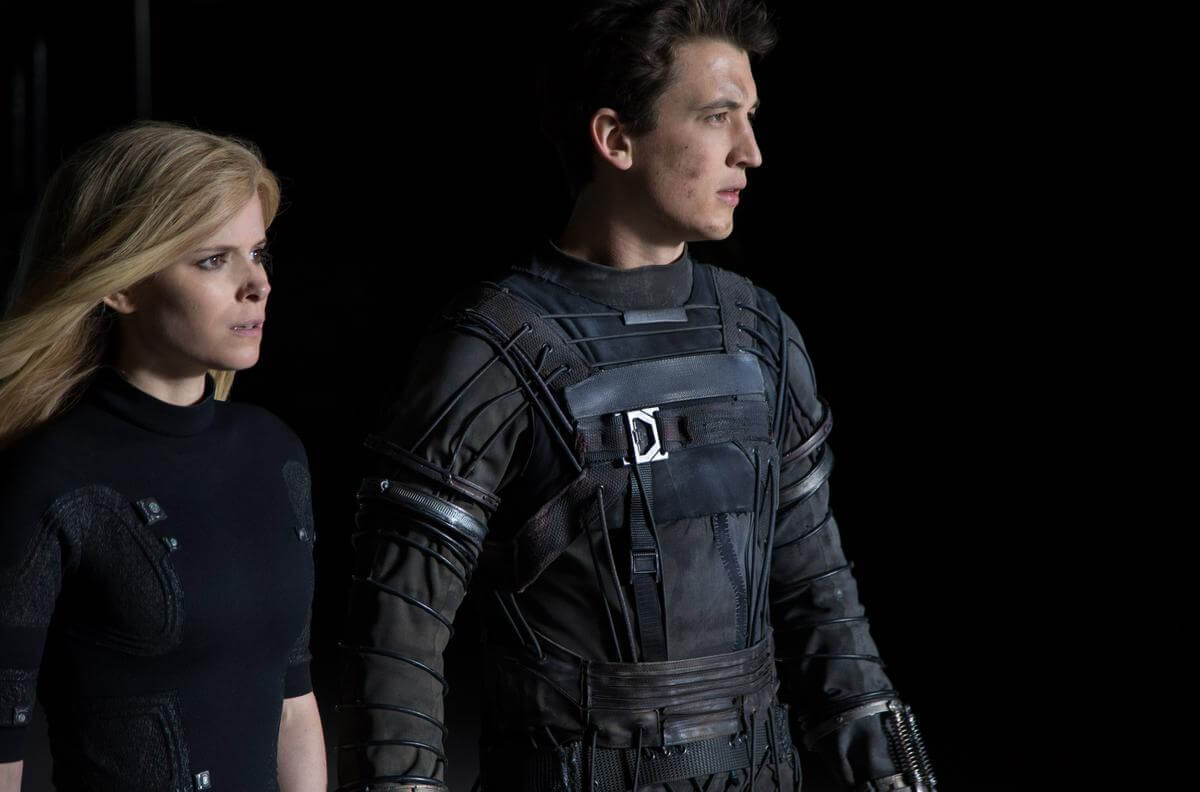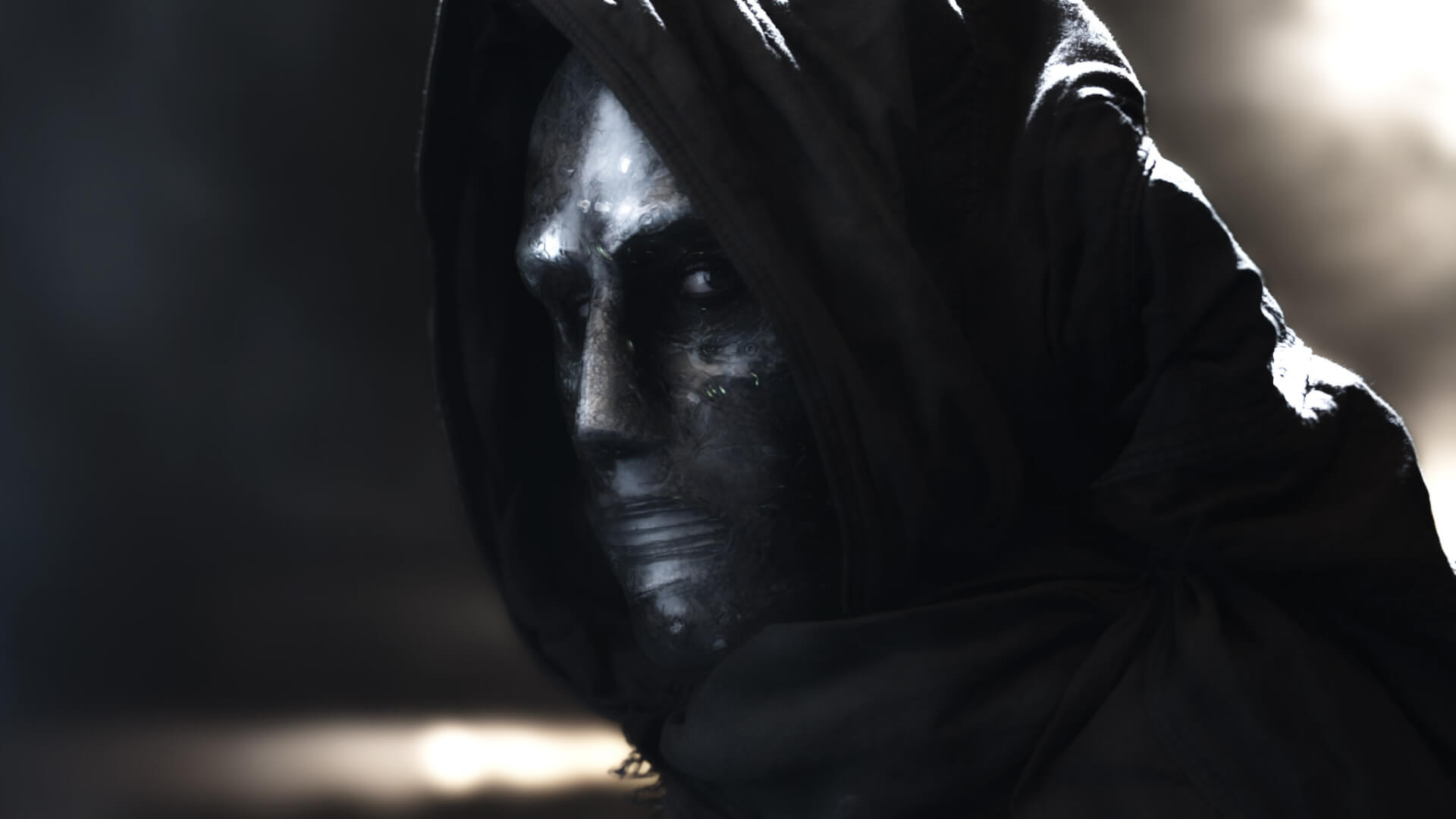FANTASTIC FOUR (2015). It’s not a movie; it’s a hundred-minute prologue

Sitting down to watch the Fantastic Four, I was armed with knowledge about the exceptionally challenging production of Josh Trank’s film. Even before the premiere, details began to emerge about conflicts on set between the director and the actors and the rest of the crew, his removal from editing, reshoots, deleted scenes, and an overall atmosphere that did not favor productive work. How much this translated into the final result, which is the finished film, is easy to assess – the whole thing resembles more of a hundred-minute prologue that ends after the first and only encounter with the antagonist. It is perhaps the most economical adaptation of a comic book in this regard. It’s a pity that it has little in common with its illustrative source material.
Teenage genius Reed Richards creates a makeshift machine capable of teleporting any object, attracting the attention of Dr. Franklin Storm, who is working on a similar project. Where the sent objects land is a mystery, but the scientist suspects it might be a planet in another dimension. Richards, of course, helps to build a teleporter capable of transporting people as well, but it comes at a cost. During the exploration of the unknown planet, a catastrophe occurs, transforming the team members into superhumans with incredible powers – Reed can stretch his body like rubber, Sue Storm becomes invisible, her brother Johnny turns into a living torch, and Reed’s best friend, Ben Grimm, takes on the form of a rocky giant. The fate of the last scientist, the proud and dangerous Victor von Doom, remains a mystery. Until now.
The above description roughly aligns with the comic book original, but in this case, it’s not just about the story, but also about how it was told. And this is far from the colorful and lively nature of the drawn adventures of the Fantastic Four.
The film signed by Trank gets stuck in seriousness and a pseudo-realistic approach, losing somewhere along the way the playful aspect that is so crucial for this type of cinema.

And yet it’s hard to take the plot seriously, where the characters are named Johnny Storm and Victor von Doom – when one of the government officials pronounces the latter name, one can smirk, if only because no one in the film does. Mr. Doom deserves a few good jokes, but even this opportunity is not utilized.
This is the second time Hollywood has adapted this story – the 2005 version and its sequel two years later were not entirely successful spectacles aimed at a younger audience, but at least I got to know the characters, and their relationships were in line with the original. In Trank’s version, the only things I recognized were the names and powers. What indicated the strength of the comic, the bond between the characters, is barely sketched here, and their characters are somewhat modified to fit the rather somber atmosphere of the whole. This is most evident in the case of Reed Richards (colorless Miles Teller), who doesn’t resemble a genius and a leader, and at a critical moment, he leaves his friends and runs away. This is not the Mr. Fantastic I know.
It’s also challenging to call them “fantastic” because before they become such, over half of the movie passes, then the action jumps a year, and before we realize it, we have the finale and closing credits. The characters don’t have time to enjoy their unearthly abilities, even if they wanted to. And they don’t want to – there’s no excitement in discovering the unknown, the wow! effect doesn’t exist, and the characters complain about what they have become. Even Johnny, who feels good in his new role, is not enough.
This is an exceptionally misguided adaptation, difficult to defend even as an autonomous work.

The emotion-drained characters speak their emotionless lines about black holes and interdimensional travel with their indifferent voices. The actors show no eagerness to participate in this “adventure,” trying not to stand out so that it’s easier for the audience to forget them. The creators remember their antagonist twenty minutes before the end of the film; the confrontation with him lacks any dramaturgy, and the death of the most interesting character provides emotions similar to watching a toothpick falling from the twelfth floor. It’s also entirely unnecessary and senseless, much like the comparison.
Was Trank’s film doomed from the start, even if he had made it without any obstacles? It’s hard to say. I review the work that appeared in theaters, not what it could have been. There are scenes and ideas here that indicate an original and intriguing concept – the characters’ powers are portrayed in an exceptionally eerie light, bearing little resemblance to the comic but offering hope for a slightly more interesting cinema. This is, in fact, the best part of the film, from the moment of the explosion in the laboratory when Richards thinks he sees Johnny’s burning corpse and Ben buried under debris. The subsequent examinations of the entire team and the attempt to use their abilities by the military are more interesting than the final showdown with Doom, perhaps because the focus is on the characters struggling with their powers rather than special effects (which are not that special). However, the creators spend too much time on exposition and too little on forming the titular four. We only see them in the final scenes, seemingly joyful and smiling, as if they had forgotten that they were sad and unhappy before. Maybe they’re just happy that it’s finally over?

